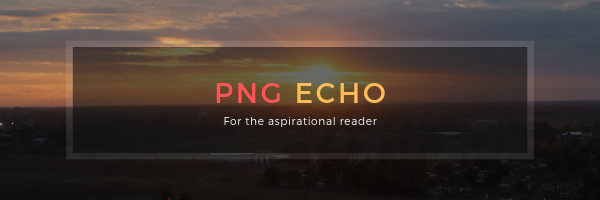By PNG Echo

Although Prime Minister Marape says he is on a course to “Take back PNG,” the result of the Bougainville plebiscite suggests he’s not winning.
And while we’re all aware that independence for Bougainville still lies in the hands of the PNG parliament, in the hearts and minds of the vast majority of Bougainvilleans the question has been answered for all to see – they want political separation from PNG (not autonomy) and Bougainvilleans expect it to be so.
One part of any reluctance the PNG government may feel about granting Bougainville independence lies in the ‘slippery slope’ argument – once granted to Bougainville they’ll all want it.

Indeed, New Ireland, through Governor and former PNG Prime Minister, Sir Julius Chan has long toyed with the idea, even though, ironically, it was the Bougainville conflict that led to the premature end of his Prime Ministership of PNG. Social media has also, lately, been making suggestions of independence for other provinces.
However, there is a vast difference between Bougainville and the others.
Ethnic nationalism vs civic
There are different types of nationalism, driven by different imperatives – two prominent examples being ethnic nationalism and civic nationalism.
Ethnic nationalism is driven by markers of identity; language, culture etc and an occupation with the preservation of a separate national identity whereas civic nationalism is driven more by the prominence of civic institutions peculiar to an area (nation) and often involves more elements of economic concern. However, it is well-understood that each ism almost always contains elements of both with one element dominating.
I would argue that the nationalism that arose in Bougainville was ethnic nationalism whereas the other expressions of desire to separate from PNG are civic nationalisms.
Bougainville vs the other regions of PNG
Bougainville has declared itself an independent state twice already in the past – the first time in 1975 just two weeks before independence in PNG. But the separatist movement started even before then.

The late Bougainvillean, Chris Baria, (who tragically died only weeks before the recent historic plebiscite) in the months before his death, penned an article (click here) that dated separatist agitation on Bougainville back to at least 1968. And while the mine at Panguna was a catalyst for the war and ever-stronger expressions for independence through the 1990s and beyond, the mining issues only served to consolidate a prevailing feeling of being different from their PNG counterparts – a difference that Bougainvilleans wanted to preserve. Indeed many Bougainvilleans say they feel more akin to Solomon Islanders. In other words their nationalism is ethnic in nature.
On the other hand, most of the other recent separatist expressions in PNG have come from provinces rich in resources that believe separation will improve their lives by providing more money per capita. Unfortunately, there are precious few indigenous civic institutions (peculiar to their region) for them to fall back on to buoy their cause if we are going to label this expression of nationalism as ‘civic’. This nationalism is based mostly on economics and a hope of increased prosperity that may or may not be realistic.
(Here, I’m going to pause to acknowledge that regionalism is still strong in PNG – so there is definitely an ‘ethnic’ component to the nascent nationalism – it’s just not high on the agenda. I doubt that any other province is serious enough about independence to start a war with PNG over it, for instance.)
What the non Bougainvillean separatist sentiments are really saying is not that they want to necessarily become independent, just that they want more – not an unreasonable desire given the poor social indicators in PNG.
So, give them more

And so, the Prime Minister turned up in AROB last week bearing gifts.
Now, given the underlying imperative of the Bougainvilleans for a separate identity, I’m not sure that’s going to stymie desire for independence (although, I’m sure it would been efficacious in other provinces).
Although the old adage says “everyone has their price,” will this hold sway in Bougainville? PNG does not have, at its disposal, what Bougainville wants while still attached politically to PNG. One party is, of necessity, going to lose the battle because their desires are diametrically opposed.
And, although Marape has given a wink to the unique Melanesian brand of sorting out problems, I’m not sure that Prime Minister Marape has much chance of amicably denying independence to Bougainville using the ‘Melanesian Way’. The ‘Melanesian way’ of problem solving is largely mythical and its efficacy is questionable given the undisputed statistics of violence in PNG despite the Melanesian Way. Indeed, given the evidence, the usual method of problem-solving in PNG is not by peaceful means but by violence.
In my opinion, Marape (and the PNG parliament) would be better served to ratify the result and grant independence readily – given its almost inevitability anyway. This is the only way to ensure future warm relations between PNG and Bougainville.

To try to keep Bougainville by force (a place to where the situation could descend) is tantamount to becoming an Indonesia to Bougainville’s West Papua. The question is: would PNG resort to similar tactics Indonesia has employed to subdue expressions of independence in Bougainville?
And before you answer that, speak to someone who remembers the atrocities of the civil war on Bougainville – I have – and the atrocities equal, if not surpass, what’s happening in West Papua (and yes, the atrocities were committed by both sides.)

